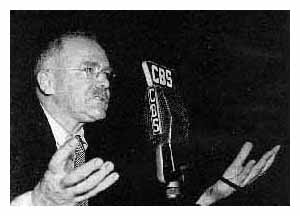
Another Slap On The Wrist
Thinking back over radio�s history, I can�t help but wonder what would have happened to those responsible for programming if many of today�s antics had taken place. Radio was expected to provide entertainment that could survive the scrutiny of the public and the Federal Communication Commission, who in those days�had teeth. The owners of radio past were always on guard for any possibility of being fined by the FCC. Anyone responsible for allowing that to happen would almost assuredly be unemployed and certainly not someone held in high esteem by the industry.
Imagine if you will, an on air contest that invited participants to smack each other in the face just to see who can hit the hardest. Certainly men leaving red welts on each others face would be bad enough�but females? What could be more enjoyable than visualizing two �ladies� winding up and slapping each other silly?
�Smackfest� was the audience pleaser presented by WQHT (Hot-97) in New York. Perhaps you may have heard of an earlier rebuke for the Emmis owned big apple station with its airing of the �Tsunami Song� that attempted to find humor in the Southeast Asia Tsunami disaster that killed a few hundred thousand. Or was it when the station was identified as a gathering place for some of today�s worst role models?
The slap happy winners who landed the hardest smack won tickets to a rock concert. �Smackfest� also won the stations owners a $300,000 slap on the wrist by the New York Attorney General, Eliot Spitzer, who like most of us failed to understand how the shenanigans entertained, much less benefited society.
Radio continues to explain its downward slide into indecency is a result of it mirroring society. The industry takes credit for selling the advertisers products, but refuses to admit it also is selling the acceptance of very poor behavior.
= = = = = = = =
A Slap on the Wrist
The Attorney General of New York has performed a valuable service in uncovering the illegal activity initiated by two foreign owned companies, Sony of Japan and BMG of Germany. To my way of thinking a ten million dollar fine is chump change for the right to operate in the United States after having violated our laws. Sony and BMG fraudulently attempted to control the music industry and prevented many talented artists from having their creative endeavors heard over the public airwaves. The expense for having to pay for airplay has forced smaller record companies to close their doors and cease operations. The willingness to pay is at the root of the problem.
With more than fifty years invested in radio, it pains me to know of those in the industry who don�t appreciate the music furnished by the recording industry without expecting payment for programming it. Take away the music provided free and radio would be naked. The fee broadcasters must pay to music licensing organizations for programming music is still a fraction of what they would have to pay in replacing the free entertainment value provided by the recording industry.
It is unfortunate the deregulation of radio ushered in a management controlled totally by former sales managers. Under their direction an attempt was made to legalize payola. They got away with it for several years until legal eagles responsible for their actions began to warn of license revocation. By then the seed had been planted that spawned a new generation of programmers who�s bosses encouraged them to eat freely from the payola trough by accepting free bee�s meant to be used as listener prizes that would deliver more operating cost to the revenue bottom line. With the genie out of the box it isn�t surprising to find some �prizes� became the personal possessions of radio�s programmers. This was not unknown in radio�s past but in the past ten years the taking of payola has been epidemic.
It became fashionable to �make those bastards in the record companies pay� for the exposure provided by radio. A valuable ally that provided so much to bring excitement to radio�the recording industry became its pimp. Radio no longer takes advantage of the natural magic that came from music excitement. Today hearing a radio station excited about a new record is no more, unless of course its endorsement was bought and paid for.
The public, the music industry and radio deserve knowing a hit recording is indeed just that. Anything that disrupts that process should bring penalties to those who attempt to control a fair accounting of what's truly popular.
Sony and BMG deserve having their right to operate in the United States interrupted for violating our nation�s laws. Perhaps it would be more in line if a suspension of their right to operate in this country were tacked on to that ten million dollar slap on the wrist.
jr
= = = = = = = =
Here Come da Judge (part 2)
While the radio industry was hoping the current payola flap would be swept under the rug by a vacationing President Bush who would take his time at appointing a full body of commissioners, the other shoe dropped�.
In a surprise announcement, FCC Chairman Kevin Martin has called for strict action on the issue saying, �The FCC has longstanding rules prohibiting payola. These rules serve the important purpose of ensuring that the listening public knows when someone is seeking to influence them. Broadcasters must comply with these rules. The Commission will not tolerate non-compliance.� Martin added, �If the Bureau determines violations of the payola rules have occurred, the Commission will take swift action.�
Commissioner Jonathan Adelstein echoed the seriousness of the up coming investigation by the FCC, �I believe this payola scandal may represent the most widespread and flagrant violation of any FCC rules in the history of American broadcasting. Mr. Spitzer�s office has collected a mountain of evidence on the potentially illegal promotion practices of not only Sony BMG, but also other major record companies, independent promoters and several of the largest radio station groups.�
The toothless tiger is no more�..
jr
= = = = = = = =
History Repeats
I was Johnny Rowe the disc jockey in those days long ago when I first read the word �payola� in the newspaper. The print press had a field day calling attention to how the new rock n� roll plague had received airplay. Prior to those days about the only black artist heard on the radio was Nat King Cole, Sammy Davis Jr., the Mills Brothers, Sarah Vaughn and Louis Armstrong. In a short period leading up to the 1959 � 1960 payola scandal �race� music was finding airplay in the major markets and that didn�t sit well with the power structure of �white� America. Congressional hearings soon gave opponents of �the devils music� the fuel they needed to claim victory for their cause.
A few big time disc jockeys were held accountable for �pushing� this deplorable music on the public as their �sins� were exposed for all to see.
None of this ended rock n� roll as the music once only appreciated by teens spread to their children and their children�s children. Payola didn�t die either, as the Attorney General of the state of New York, Eliot Spitzer, was eager to prove. His investigation encouraged Sony BMG Music to swallow a ten million dollar fine as several other recording companies prepare to face the music.
Spitzer's expose is here via pdf
Of course this doesn�t signal the end of the game with FCC hearings and congressional actions once again casting a shadow over radio�s standing with the public as history repeats.
jr
= = = = = = = =
Payola Scandal's Effect Starting
Nearly everyone who listens to radio will be exposed to
the story about Sony paying $10 million for its payola miscues.
Nearly every publication is going to take full advantage of the
truth. Radio is, after all, a competitor. Anything the print world
can do to bring radio's problems to light will be done. Besides,
you've got to admit it makes for a good read.
One example of the articles hitting newspapers today is linked
below. Titled "Signals of Trouble for Radio," the story steps
through all that's expected: Radio's diminishing audience,
payola, new competition, payola, getting back to "local" jocks,
payola. The p-word is like "crotch-itch" in that it grabs attention
no matter what context it's put under.
Read more here:
= = = = = = = =
�Bad things happen to good people�

H. V. Kaltenborn
Sitting in front of his Zenith floor model radio, my grandfather patiently bounced me on his knee as I pretended to be riding a horse. Quieting my giggling, gramps was glued to the words of H.V. Kaltenborn, one of the pioneer radio news reporters that kept our country up to date with the day�s events. Words flowed freely from Kaltenborn as he read from no script, instead using just some scribbled down notes to remind him of points that needed emphasized. His broadcast along with Edward R. Murrow and Walter Winchell were daily happenings in most households in the days before television.
While Kaltenborn may be largely unknown by a generation of escapees of history, an organization that he started more than half a century ago continues to serve as he had envisioned. Today, headed by many who have enjoyed great success in broadcasting,
The Broadcasters Foundation has been a safety net in times of personal or family crisis for radio and television professionals across the country. The foundation provides anonymous financial grants to those who, through no fault of their own, are in acute need due to critical illness, advanced age, an accident or other serious misfortune.
With the guidance of industry veteran Gordon Hastings and a star studded line up of industry notables, the Broadcasters Foundation quietly proceeds to follow the wishes of radio pioneer, H.V. Kaltenborn. �Bad things happen to good people�, says Gordon.
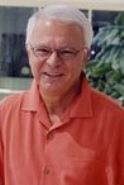
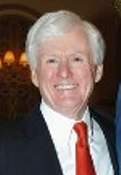
Jerry Sharell Gordon Hastings
Another long time friend, Jerry Sharell, a singer and recording industry executive, heads up an equally impressive response given birth by two female singer�s back during Kaltenborn�s day. It was the desire of Ginny Mancini and Gilda Maiken Anderson for the Society of Singers to become a reality. Ginny, prior to being Mrs. Henry Mancini and Gilda vocalized with big band era credentials.
Many who gave us much enjoyment as singers have found themselves without medical care and times as difficult as those who contributed talent as broadcasters. Their talents too left a vital ingredient in the world of entertainment.
We can only hope today�s industry leaders in both fields continue in the compassionate example that was exhibited by those who preceded them.
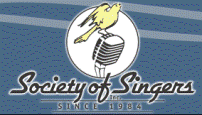
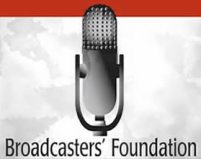
Learn more about these two "silent" givers by clicking on the above logo
jr
= = = = = = = =
Actions speak louder than words
Years ago it was said, if you tell the public enough times who you think you are, they�ll begin to believe it. Unfortunately, while that may have been true for an earlier generation of society, it probably doesn�t fit today�s radio listener. Given the many options today�s radio consumer has I seriously doubt they are hearing, much less believing, most branding radio is attempting to sell with a few words. We have long since passed the day when a mans word was his bond, today we trust little that is said from our political leaders or from advertising.
It�s the actions that speak volumes in describing a radio station. Your �sell� has to be more than proclaiming a dozens times each hour that your station has fewer commercials than anyone else or plays more music than anyone else. KFI is an example, it didn�t just say they provided �More Stimulating Talk Radio�, they actually delivered cutting edge talk radio that was indeed �more stimulating� than their competitors.
Recently radio decided on a slogan of �less is more� in describing its reduction in commercial content. While the concept of persuading advertisers they could find success in reducing the length of what radio today has been calling a commercial is probably correct, those who believe the slogan should be used on the air for the consumer has been a disaster to my way of thinking. Imagine what the listener must think when they hear a promotional liner telling them the station is �cutting back on commercials� then precedes to throw three or four commercials at them. The radio station that continues to program up to a quarter of each hour with commercials that don't entertain can waste all the time they want in promoting the lie of fewer commercials�.the listener has ears. If creativity exists in radio commercials these days, I have yet to hear it. A music bed that often doesn't even fit the clients message or image, with as many words that can possibly be piled on it, doesn't do the advertiser or the listener any favors. Often as not, the sales mentality of today's radio doesn't seem to understand...it's all programming. Programmers today have been brain washed to pay little or no attention to commercials. They actually pay little attention to programming a commercial break...the flow, the momentum...it's all unheard of in today's radio.
The radio station that allows the same commercial to be programmed two and three times each hour is chasing away the listener. They would not continue to listen to a radio station that programmed the number one song with that kind of rotation, certainly a commercial provides even less appeal.
Frankly the public doesn�t give a damn what you want them to believe. They will form an opinion of what and who you are by listening over a period of time. If you have no slogan of any kind, but make the consumer feel good they have chosen your station, then you have delivered a long lasting successful relationship. They tune in daily and find little temptation to change the dial if they are given what they came for. Its product endorsement of the best kind. That listener will do more to promote your station by word of mouth than you can ever hope to achieve with any campaign you have in branding your station.
Programming must be fresh and interesting, effort must be spent in making it so. Today, so much programming has forgotten, if it ever knew, so many of the guidelines of radio's past. Unfortunately, many who are responsible for programming are no longer motivated to develop talent and create great radio stations. They might just as well be working at a gasoline station, not a radio station. The pride of programming a truly great radio station disappeared when sales took the lead forgetting a product must be developed before it can be sold. In an effort to pay down the debt, radio has lost focus of the product that must come before the sale. Today with very few exceptions very little programming expertise is in top management. In fact, very little programming expertise is in radio period.
Create the kind of programming a listener doesn't even think of turning off. Programs that become magnets for listeners. Let that programming become what you are known for...day in and day out. No promotional campaign can beat it.
A radio wizard of another era said it best. Bill Gavin told me �it�s not what you say you are�but who you are that counts�. In frustration of not being able to match a competitor with advertising dollars, Bill reminded me radio has a very valuable advantage over most products�its self. Slogans and advertising campaigns on other media such as television and billboards are fine, but radio misses the point entirely when it fails to use its self to promote its self. That competitor who spent a vast amount of money in promoting it self, was wasted as my station with no outside advertising campaign continued to be top rated. Gavin said, �see John, its what goes out the speaker that counts, not what you paste on a damn billboard�.
Yes Mr. Gavin, It�s the actions�that speak louder than words.
jr
= = = = = = = =
The XYZ of ABC
The end of ABC radio ?
As program director of three ABC radio stations during my career, KQV, WLS & KABC, I naturally have a fondness for that group.
Almost fifty years have passed since Ralph Beaudin and Ben Hoberman led the company�s radio stations to greatness, establishing them as the nations top radio group. Ralph spearheaded ABC�s entrance into Top 40 with KQV-Pittsburgh, moving on to create the new sound of WLS and was rewarded by being named chief of all radio for the company. In those early years, Ben Hoberman, with the aid of George Green launched an entirely new format called �Talk Radio� at KABC in Los Angeles where for almost two decades the station led all others in ratings and revenue. Their efforts would be duplicated at KGO where today Mickey Luckoff and Jack Swanson continue to maintain that station as San Francisco�s top rated facility. To my knowledge, history will show no radio station surpassing KGO�s consistent #1 rating over so many years.
WABC radio soon followed KQV and WLS feeding New York the music of the nations Hit Parade and adding even more revenue to the company�s coffers. Sam Holman, advanced from being KQV and WLS program director to a similar responsibility at WABC. WXYZ in Detroit also delivered its share of dollars with its Top Forty offering in the Motor City.
ABC�s godfather and founder, Leonard Goldenson told me, �without our radio stations, its doubtful there would be a company� as he explained it was the revenue from radio that contributed to the company�s entrance into television. Adding, ABC would have been left behind offering black and white programming while its competitors, CBS & NBC introduced color television to the world. �We could never have competed� said Goldenson, �the move to color was extremely expensive�.
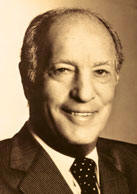
ABC's Leonard Goldenson
He seemed to remember every name of those who worked for ABC, offering a handshake after addressing us on a first name basis. My finances improved more than once upon receiving a bonus check from Leonard Goldenson along with a personal note of thanks. One of them was the down payment on the first home I would buy. Through him I learned to always judge the company by the man at the top. ABC radio employees were a family and Mr. Goldenson sat at the head of the table. The fiber of those early broadcast pioneers is totally missing from the industry today. No longer are their any new Leonard Goldenson�s�.Bill Paley�s or John Kluge�s. Those of us who counted them as our leaders were spoiled beyond repair
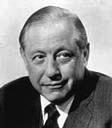
CBS's William S. Paley Metromedia's John Kluge
Throughout the 60�s and 70�s ABC radio was the darling of the industry, held up as a role model for all to admire. Programming was key as it delivered the ratings to feed the revenue pump.
While all things need not necessarily end, change would come with Mr. Goldenson�s retirement. ABC, Inc. was sold to Capital Cities, a small broadcast group out of Providence, Rhode Island and radio stations that had been virtually debt free, had pressure to contribute more and more dollars to service the new debt. In time the Walt Disney Corporation became the owners of ABC, Inc. It seemed evident from the beginning, the mouse knew little about radio and the division that had once been on the front burner, was pushed to the back. Unlike the ownership of ABC, Inc. and Capital Cities, I never was introduced to anyone from the Disney ownership.
Now with radio�s future in question and its growth at a snail pace, we understand the radio division could be broken up and sold to the highest bidder, meaning the end of ABC radio and a new taskmaster for the company�s current employees. Certainly the whip will be out demanding more revenue than possible to service even more debt. The ABC radio station�s are expected to contribute around $240 million in cash this year to Disney, and is currently valued between $2.6 billion and $3.6 billion.
To those few ABC employees who have outlasted the changing of the guard over all of these years goes my best wishes and hopes for your continued survival. Your contributions have left its mark and we who served with you in the past can be proud of the chapter in radio history that we helped write.
jr
= = = = = = = =
Martin�s Memo
Let's agree to stop describing our programming as compelling unless something actually happens on the radio station after the morning show that is not a liner, a sweeper, a promo, that day's music log, or one exceptionally good phone bit with a contest winner
Today we are
blessed with much great talent, performance art is their metier.
These gifted people create proprietary intangibles - the alchemy
that puts people in the tent and keeps them coming back to the show.
These people are not announcers, certainly not disc jockey�s, they
are that rare animal - the performer, the talent. Talent is radio's
last sustainable barrier to entry, no matter the format. The popular
excuse today for not hiring talent (e.g., the morning show
"challenge" it seems every PD has) is "there's nobody out there" -
nonsense. Our talent problem is a symptom, we have a leadership
problem.
Too few are obsessed
with finding, developing and leading creative people. The tradecraft
required is casting and directing. To serve as a program director
one first needs to appreciate and respect talent. A great program
director works for
talent, bringing out the best in each performer.
David Martin knows radio like too few do. His thoughts are featured on a regular basis.
More "Martin's Memo at N=1
= = = = = = = =
Mr. Record Man
Thank you Mr. Record Man, for being there for me
Without your gift of music, my career would hardly be
You delivered the hits and listeners to many a radio station
In various cities here and there scattered across the nation.
Russ brought Elton John and Neil Diamond,
Clive with Santana, Barbara and Paul Simon
My good friend Neil was there with more for us to play
Bubble gum and KiSS, not to forget YMCA
Herb & Jerry delivered the Carpenters, Cat & TJB
Without A & M, imagine where we would be
Michael moved to Epic, Cash on Columbia too
Ron pushed for airplay for some guy who's name was Sue.
Irving with his Eagles, Al�s Maurice, Robin & Barry
Damn near too many hits, for just two guys to carry
Mo and Joe of course, had Trini, Dean and Frank
Peter, Paul & Mary and many others to thank
It took action together, to get their records sold
Artist after artist, soon would turn to gold
Radio and Records almost always seemed as one
A different time and era and man it sure was fun
They say those days are over, it no more can be had
Everything sounds the same today, and boy it sure is sad
The lesson from this story, is it�s really not to late
Radio and Records together could still make it great
New artists bring new listeners; music excitement can do it all
It�s easier than you think and now it�s just your call
The names have changed and while some are here no more
These two industries together still have time to really score
Reverse the stance you�ve taken, return to the good ole days
Have fun with music excitement, you�ll find it really pays
John Rook
PS - when was the last time radio actually broke a hit record?
= = = = = = = =
Music Excitement
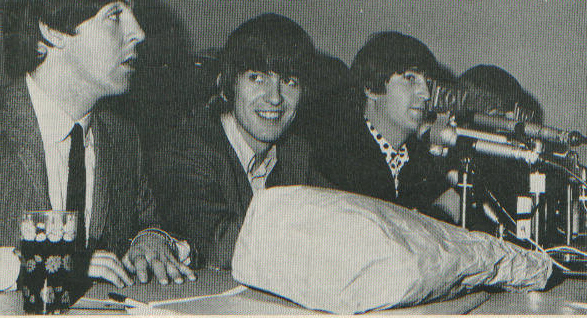
Paul, George, John & Ringo at KQV
Decades have passed but I can remember it like it was just a few short weeks ago, as Program Director of ABC owned KQV-Pittsburgh, I had cemented a relationship with Bess Coleman and Brian Epstein, managers of what was to become the hottest recording stars of this generation � the Beatles. Upon George Harrison and John Lennon learning of my close friendship with one of their idols, Eddie Cochran, the door was opened for KQV to become the first radio station in the nation to air most of the early hits by the mop-tops.
In those days before satellite�s and Federal Express, the first few �exclusives� from England were copied and transported to the Pittsburgh airport where for a few bucks, airline pilots would fly them in the cabin to New York where WABC�s program director, Rick Sklar eagerly waited to rush them to �Cousin Brucie�.
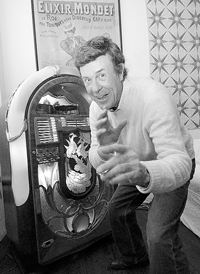
"Cousin" Bruce Morrow
As he joyfully proclaimed them to be WABC World Premiere�s, KQV�s night time pied piper Chuck Brinkman, who had presented them to his audience at least a day before, begged me to allow more time to lapse before supplying them to WABC, whose signal covered the entire eastern USA including Pittsburgh. However, within hours of KQV airing any new Beatle recording, Rick Sklar was on the phone to insist it be shared with WABC. KQV was such a �hot� radio station, that the always present record people traveling into town would telephone Rick to alert him.
After a few weeks, Rick discovered an even speedier way to have Beatle recordings transported to New York. Using �downtime� on the ABC radio network, they were sent directly to the WABC studio�s and rushed to the air. Rick found humor in knowing that dozens of affiliates, including ABC owned WLS in Chicago didn�t realize they too could have had �world premiere�s� had they just paid attention what was being moved during the periods of network �downtime�. Our little secret didn�t escape the attention of ABC�s radio president Hal Neal, who insisted we share the Beatle music with WLS also. At that point, within an hour or two of airing a Beatle exclusive on KQV, it was also being heard by Pittsburghers via the huge signals of both WABC and WLS .
Brian Epstein arranged for Chuck and me to �vacation� in the Bahamas with the Beatles, where given the almost primitive telephone service, Chuck �taped� interviews.
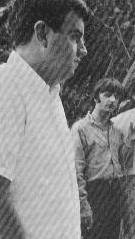
Chuck & Ringo
Hal Neal, always questioning any relationship and/or friendship ABC programmers had with record people, soon appreciated my contacts�if for no other reason than supplying Rick with WABeatleC World Premiere�s. �Your music excitement concept is brilliant� said Neal, �just make sure your hands are always clean in dealing with those record people�. I did, and �Music excitement� became a tool I would use for many years as a programmer.